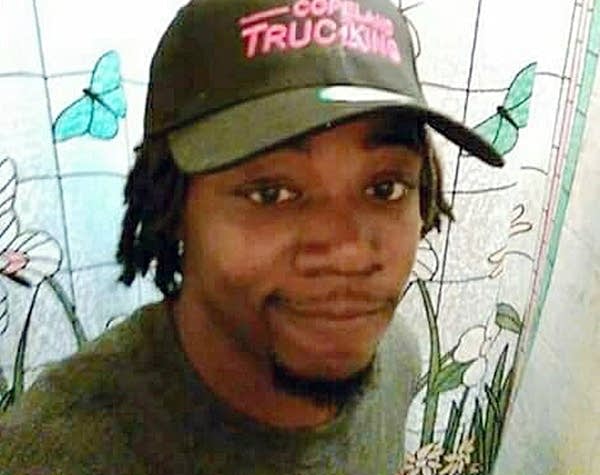On eve of Scarsella's sentence, victim still feels wounds

Go Deeper.
Create an account or log in to save stories.
Like this?
Thanks for liking this story! We have added it to a list of your favorite stories.
After the fatal shooting of Jamar Clark by police in November 2015, protesters camped out in front of the 4th Police Precinct for 18 days straight.
One night, 25-year-old Allen Scarsella shot and wounded five black men, including Cameron Clark, one of Jamar's cousins. Scarsella is to be sentenced for those shootings on Wednesday.

The memory of the incident lingers like a nightmare for Cameron Clark.
A bullet narrowly missed an artery, and his leg still troubles him. "A couple of days ago, I almost fell because my leg gave out on me," he said Tuesday. "I wake up every day; I'm still alive. But I think this will be a life issue forever, with the pain and damage that happened to my leg."
Turn Up Your Support
MPR News helps you turn down the noise and build shared understanding. Turn up your support for this public resource and keep trusted journalism accessible to all.
Visibly uncomfortable, Clark massaged his injured leg as he sat on a picnic bench.
"It's like a dream, but it's really true though," he said. "Because I never thought a white supremacist, or anybody, would have come in and caused harm to us, at a nonviolent protest, so it kind of shocked me."
He plans to offer testimony before Scarsella is sentenced today. But he also wants to ask a question:
"What was the reason, or who sent you down here to cause this harm? You shot five black people. What was the reason, and why? Me, waking up every day, looking at my wound, and the pain that I go through, it's really crazy."

At trial, a Burnsville police officer who grew up with Scarsella described him as believing that "if you're black, you're bad." Clark hopes Scarsella is sentenced to at least 20 years.
"I feel that if they give him anything 10 or lower, white supremacy has a lot to do with it, because I feel like he should be getting like 20-25 years to life," Clark said. "I'm just surprised why he and his friends aren't getting hit with premeditated murder charges.
"Why aren't his friends getting hit with those same charges? Because I know that if it was me and a group of my friends, and we committed a crime like that, they would have all charged us with the same crime and the case would have been over by now."
Roosevelt Pargo, 58, has lived in north Minneapolis for four decades. He said he thinks Scarsella's sentence will have little effect.
"He's just the one that they're making an example of, that's all," Pargo said. "He got caught. And they knew who he was. He might be sentenced 10 to 15 years, but he'll probably be out in three or four on good behavior, and be released. And they'll sweep it all under the rug. And it will be the same thing, over and over, that's all."
Pargo said not many people care about the sentencing of Scarsella because blacks continue to be treated as second-class citizens, and because the majority of police who walk these streets are white.
"You let one of us go out there and shoot up a white protest, oh they throw us into jail," he said. "You aren't going to get out. And that's just the God's honest truth. ... Mark my word. This is 2017. He'll probably be out by 2020. There's them and then there's us. And they continue to get treated differently.
"When you live long enough, you've seen enough. You recognize it for what it is. It's the same old double standard."


